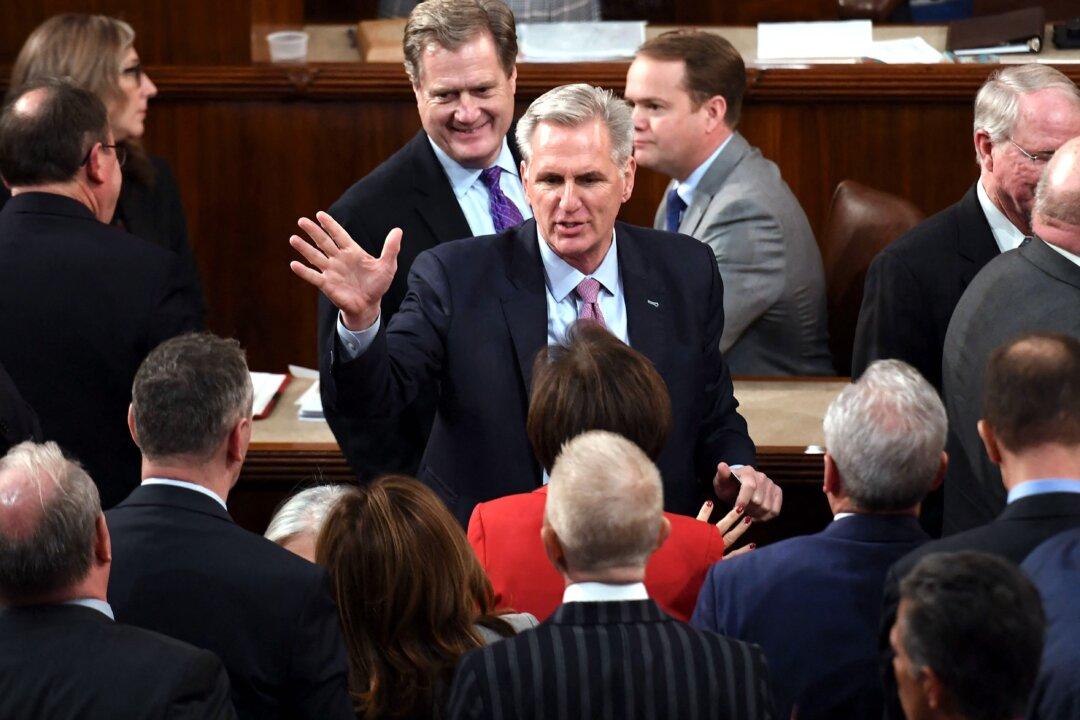It took 15 votes beginning on Jan. 3, but Rep. Kevin McCarthy (R-Calif.) finally gained enough votes on Jan. 7 to be elected the 55th speaker of the House of Representatives in a nail-bitingly close election that ran past midnight in the lower chamber of the U.S. Capitol.
McCarthy’s 216 votes total bested Rep. Hakeem Jeffries of New York, who received the votes of all 212 Democrats present in the chamber in all but one of the 15 votes that began a little after noon on Jan. 3 when the 118th Congress convened for the day. Jeffries received 211 on an earlier vote when Rep. David Trone (D-Md.) missed balloting for surgery.






